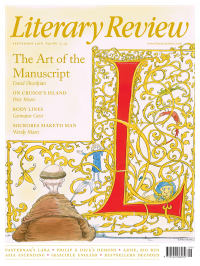David Edgerton
Over to EU
Continental Drift: Britain and Europe from the End of Empire to the Rise of Euroscepticism
By Benjamin Grob-Fitzgibbon
Cambridge University Press 590pp £24.99
Britain's Europe: A Thousand Years of Conflict and Cooperation
By Brendan Simms
Allen Lane 302pp £20
Why has much of the United Kingdom been so Eurosceptic? One common answer, from Eurosceptics and pro-Europeans alike, is that the UK has been and remains very different from what is called continental Europe. The differentiating feature, it is typically suggested, is the ‘empire’, supplemented in the more recent past by the ‘special relationship’ with the United States. This thesis has been reinforced by a historiography, particularly prominent in the USA, that has sought to put the empire back into British history.
Benjamin Grob-Fitzgibbon deals it an effective blow in Continental Drift by pointing out that from 1945 onwards there was a powerful British movement for the integration of the UK with the rest of Western Europe, led and energised in the first instance by Winston Churchill. The aim was

Sign Up to our newsletter
Receive free articles, highlights from the archive, news, details of prizes, and much more.@Lit_Review
Follow Literary Review on Twitter
Twitter Feed
Though Jean-Michel Basquiat was a sensation in his lifetime, it was thirty years after his death that one of his pieces fetched a record price of $110.5 million.
Stephen Smith explores the artist's starry afterlife.
Stephen Smith - Paint Fast, Die Young
Stephen Smith: Paint Fast, Die Young - Jean-Michel Basquiat: The Making of an Icon by Doug Woodham
literaryreview.co.uk
15th-century news transmission was a slow business, reliant on horses and ships. As the centuries passed, though, mass newspapers and faster transport sped things up.
John Adamson examines how this evolution changed Europe.
John Adamson - Hold the Front Page
John Adamson: Hold the Front Page - The Great Exchange: Making the News in Early Modern Europe by Joad Raymond Wren
literaryreview.co.uk
"Every page of "Killing the Dead" bursts with fresh insights and deliciously gory details. And, like all the best vampires, it’ll come back to haunt you long after you think you’re done."
✍️My review of John Blair's new book for @Lit_Review
Alexander Lee - Dead Men Walking
Alexander Lee: Dead Men Walking - Killing the Dead: Vampire Epidemics from Mesopotamia to the New World by John Blair
literaryreview.co.uk